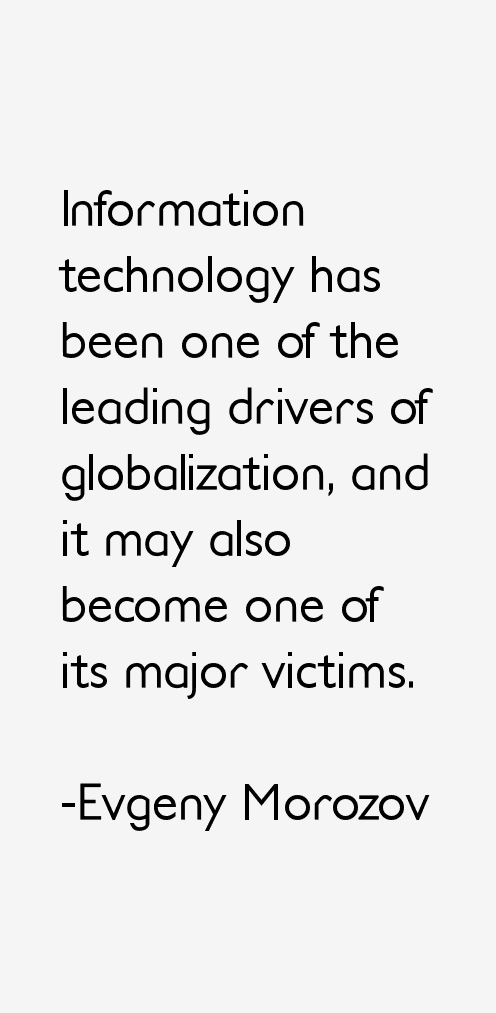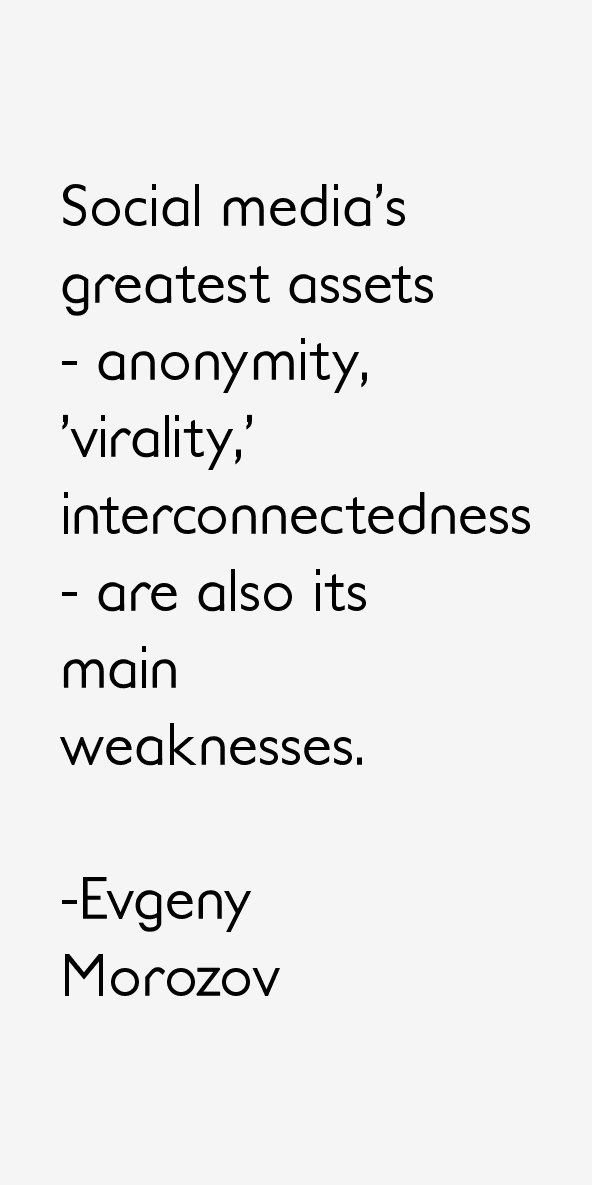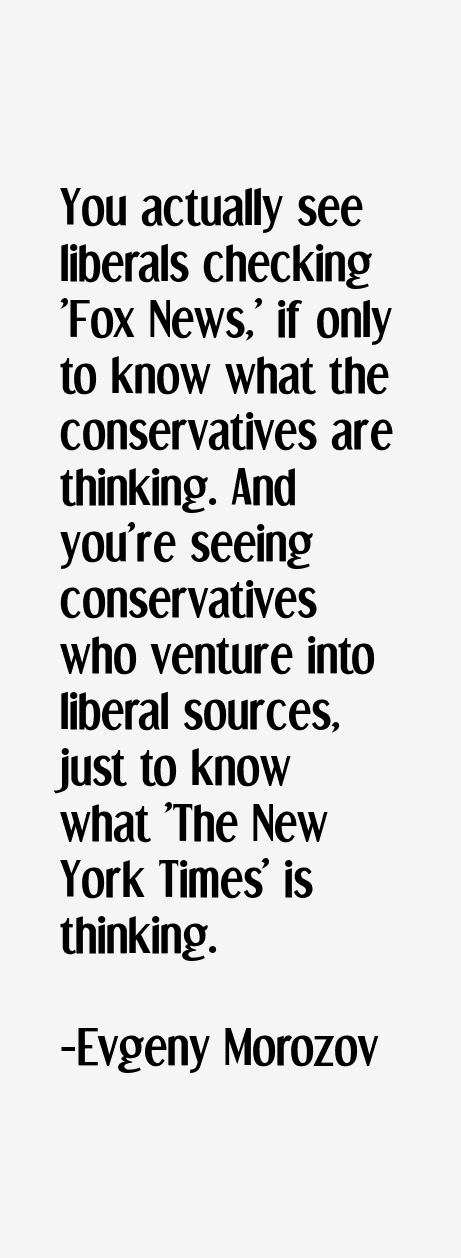Evgeny Morozov Quotes & Sayings
108 most famous Evgeny Morozov quotes and sayings (writer). These are the first 10 quotes we have.

“Information technology has been one of the leading drivers of globalization, and it may also become one of its major victims.”
“We've never thought too deeply about the roles things like forgetting or partisanship or inefficiency or ambiguity or hypocrisy play in our political or social life. It's been impossible to get rid of them, so we took them for granted, and we kind of thought, naively, that they're always the enemy.”
“My hunch is that people often affiliate with causes online for selfish and narcissistic purposes. Sometimes, it may be as simple as trying to impress their online friends, and once you have fashioned that identity, there is very little reason to actually do anything else.”
“However revolutionary it may be, the Internet still hasn't altered the basic law of human communication: Being nice to your interlocutors is a good way to start any negotiations, particularly, when being hostile is an open invitation for a cyber-fight.”
“The director of the FBI has been visiting Silicon Valley companies asking them to build back doors so that it can spy on what is being said online. The Department of Commerce is going after piracy. At home, the American government wants anything but Internet freedom.”
“Just as Josef K, the protagonist of Kafka's 'The Trial,' awoke one day to discover that he had become part of some unfathomable legal carnival, we, too are frequently waking to discover that the rules of the digital game have once again profoundly changed.”

“If you use your smart toothbrush, the data can be immediately sent to your dentist and your insurance company, but it also allows someone from the NSA to know what was in your mouth three weeks ago.”

“Social media's greatest assets - anonymity, 'virality,' interconnectedness - are also its main weaknesses.”

“You actually see liberals checking 'Fox News,' if only to know what the conservatives are thinking. And you're seeing conservatives who venture into liberal sources, just to know what 'The New York Times' is thinking.”
“The decentralized nature of online conversations often makes it easier to manipulate public opinion, both domestically and globally. Regimes that once relied on centralized systems of media control can now deliver ideological messages more subtly, with the help of little-known intermediaries like anonymous commenters on websites.”
Evgeny Morozov Quotes Rating
No Ratings Yet
Leave A Comment
























